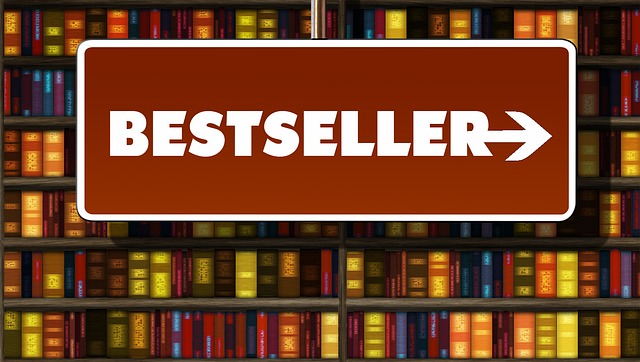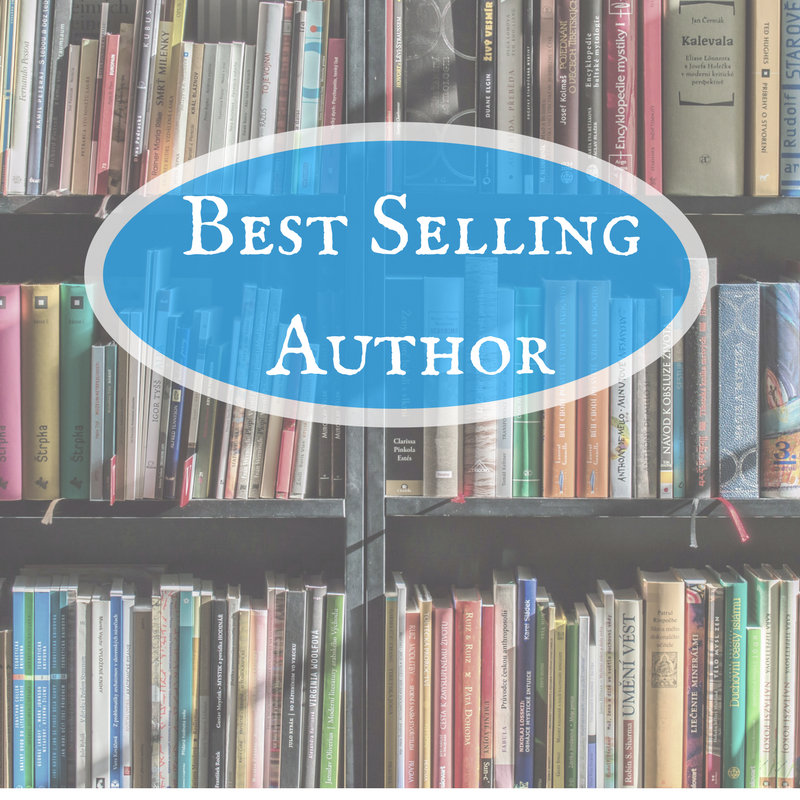[author title=”Alton Gansky” image=”https://www.almostanauthor.com/wp-content/uploads/2015/09/Al-2012-Head-Shot.jpeg”]
Alton L. Gansky is the author of 25 novels and 9 nonfiction works, as well as principal writer of 9 novels and 2 nonfiction books. He has been a Christy Award finalist (A Ship Possessed) and an Angel Award winner (Terminal Justice) and recently received the ACFW award for best suspense/thriller for his work on Fallen Angel. He holds a BA and MA in biblical studies and was granted a Litt.D. He lives in central California with his wife. www.altongansky.com
[/author]
Can you share a little about your recent books?
My last two traditionally published books are nonfiction: 60 People Who Shaped the Church and 30 Events That Shaped the Church. Both are written for the person in the pew. While basically history books, I focus on the people and the times more than dates. Both books are published by Baker Books. Although I’ve written many nonfiction books, these were a bit of a departure for me but I very much enjoyed the process. Readers seem to be enjoying them.
I’ve also been writing “serial” fiction with three other novelists: Bill Myers, Frank Peretti, and Angela Hunt. The series is called THE HARBINGERS. Each book is a novella told from the view point of a different character. Each story stands on its own but is also a part of a larger plot. Fun and challenging. My first contribution is The Girl. My next story is in development.
Why do you write? Do you have a theme, message, or goal for your books?
At heart, although I’m pretty much a loner, I am a communicator. For many years, I communicated through the spoken word then I added writing. At first I thought I’d be doing nonfiction books, but that wouldn’t come to be for years. My first half-dozen books or so were novels. The bulk of my 44 books have been fiction. I find it challenging and gratifying. Most writers will say they write because they have to. I’m part of that number. One reason I write is to learn. My education has benefited from all I’ve had to learn to churn out a believable book.
It’s a little known fact that you are the co-director of one of the greatest Christian writing conferences, the Blue Ridge Mountains Christian Writers Conference (BRMCWC). How did you come to direct it, and why did you want to?
Whatya mean little known fact? Okay, I see your point. I’m the director of the Blue Ridge Mountains Christian Writers Conference. It meets each May in North Carolina—which is on the other side of the country from me. The conference was started by Yvonne Lehman who led it for something like 25 years and did a super job. She asked me to take over 6 years ago. She still leads a conference for novelists (BRMCWC is a general writers conference covering a wide range of writing outlets). I said yes.
What do you love most about BRMCWC?
The people. Hanging out with established and new writers. The location. It’s a lot of work but once the conference begins it’s a fun place to be. I’m helped by co-director Edie Melson, and contest director Eva Marie Everson. I couldn’t do it without them or without the help of Melissa Inman, the conference director for Ridgecrest Conference Center.
How do you transition from writing fiction to non-fiction, and vice versa?
Writing my first nonfiction (Uncovering the Bible’s Greatest Mysteries, Broadman Holman) was a real challenge. I had to throw away the first chapters. Transitioning from fiction writing to nonfiction was difficult and forced me to use a different part of my brain. It was like starting over as a writer. After awhile I got the hang of it and have continued to try to improve that aspect of my writing. I’ve done something like 10 nonfiction books now and really love the art form.
Do you use any of the same principles to write non-fiction as fiction?
Yes. Of course, there is much less dialog so keeping things flowing is always a challenge. There are principles that are the same in writing fiction and nonfiction: write tight, never forget the reader, keep things moving. I study the best nonfiction writers and try to learn from them.
How has your background as a pastor influenced your writing?
Writing for the Christian market is freeing. Some think it is confining because the writer avoids bad language, graphic sex, etc. I find writing for the Christian market allows me to build three dimensional characters: mind, body, and spirit. Often in the general market, secular publishers get nervous about spiritual content. Not all of course, but many. I remind myself that I write for the person in the pew, not academics or the world in general. I don’t have a problem with the general market. Most of what I read comes from secular publishers, but I understand the Christian worldview. I speak the language and that allows my readers to understand me.
Is it easier for you to speak or to write?
The only advantage to speaking is that the preparation time is less. Still, it is an important art form and powerful tool of communication. I don’t think one is easier than the other. Just different.
What advice would you give to speakers who want to become writers?
If a person is doing a good amount of speaking, then it is a natural next step to add books or articles to his/her efforts. Most speakers what “back of room” sales (books, audio, whitepapers, etc.) for additional income. I’d start by writing about something that fits the speaking topic but that I may not be able to fit into a presentation. The listener is already dialed in the subject and will probably want more information. Printed material will serve them well and the speaker will develop writing skills in the process.
How long have you been writing? And how long did it take you to get your first major book contract?
My first novel came out in 1996 but I was working on it long before that. I used to write video scripts and ads for businesses. I also used to publish a small magazine and did most of the writing, so I’ve been writing for publication for over 25 years.
How long does it take you to write a book?
It varies. I’m pretty speedy once I get started. I wrote one novel in six weeks. I don’t want to do that again (it was a contract thing). I like to have four to six months. I’ve had a couple of years where I wrote four or five books in a year.
What’s your writing work schedule like?
It varies depending on when a project is due, how much time I’m spending on the Blue Ridge conference, and other factors. I spend the better part of a day at the computer. I used to work six days a week but I’m trying to trim that down some.
Do you have an interesting writing quirk? If so, what is it?
Nothing worth mentioning.
What has been your greatest joy(s) in your writing career?
Seeing my first novel. Seeing my first nonfiction. Seeing people I’ve mentored published. Having publishers ask me to write for them (rather than me asking them to publish me.)
What has been your darkest moment(s)?
Publishing is a business run by people and occasionally a writer can be mistreated, cheated, etc. I’ve only had a couple such events.
Which of your books is your favorite?
That’s like asking which of my children I love more. The answer depends on the day and on which direction the wind is blowing.
Who is your favorite author to read?
In fiction, Dean Koontz has been a mentor to me. The man can write. In nonfiction, Malcolm Gladwell comes to mind.
What advice can you give aspiring writers that you wished you had gotten, or that you wished you would have listened too?
Don’t try to sound like a writer, just be a writer.
No one ever hit a homerun from the dugout.
Writing is putting words on the page; great writing is taking words off the page.
What is the single greatest tool you believe a writer should have in his or her toolbox?
Humility.
How many times in your career have you experienced rejection?
Rejection is part of the writing life. Almost every writer, even professionals, have ideas rejected. It comes with the territory. I knew nothing about writing when I started my first novel. I sent it to a pay-to-read agent—I didn’t even know how bad an idea that was. It was rejected, something for which I am very grateful. But instead of being proactive, I reacted. I put the book on the shelf and let it sit for five years. That is one of the dumbest things I’ve done. Another new writer, Jack Cavanaugh, shamed me into taking it off the shelf and reworking it. I’ve been writing books ever since.
Do you have a favorite character or scene in one of your books?
That is difficult to answer. Of course, I like the protagonist of my first two books, Adam Bridger. I like the guy so much that thirty or so books later, I gave him a supporting role in my last novel, Wounds. I think my other favorites would be Captain J.D. Stanton. I did three books with him: A Ship Possessed, Vanished, Out of Time. The Perry Sachs books (A Treasure Deep, Beneath the Ice, and Submerged) are some of my favorites, since they have a strong male cast and appeal to male reader.
Where do you get your ideas?
I think it is Dean Koontz who answers that question, “I get my ideas from a small, mom and pop shop down on the corner.” Ideas just come to me. I stew on them for awhile wondering if the idea would make it as a book. There is no simple answer to this question. Sometimes I see the characters first; other times I see the plot first. If the idea won’t leave me alone, then I try to flesh it out.
What are common mistakes you see aspiring writer’s make?
Trying to sound like a writer. Some want to sound like Fitzgerald or Hemingway. That’s nonsense. Those people are often in love with the idea of being a writer instead of being in love with the writing itself. It’s the writing that matters. It is the writing that touches lives. Value the writing and the reader above yourself.
Where/How do you recommend writers try to break into the market?
It is difficult to break-in. That’s true for many professions so there’s no reason to lose heart. I suggest going to writer’s conferences that allow the writer to pitch to agents and editors. I don’t say this because I lead such a conference, but because I’m seeing greater success among new writers who get face-to-face with an agent or editor. If I wanted to become, say, a film writer, I’d start going to film writing conferences to learn the ropes and to meet decision makers.







No Comments